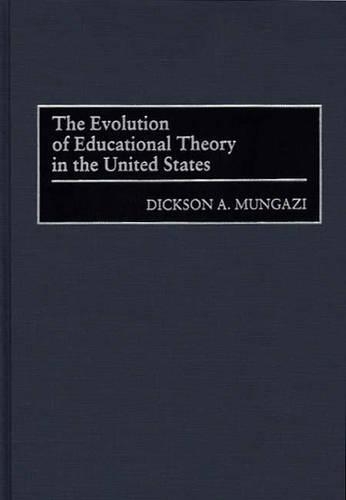
The Evolution of Educational Theory in the United States
(Hardback)
Publishing Details
The Evolution of Educational Theory in the United States
By (Author) Dickson Mungazi [Deceased]
Bloomsbury Publishing PLC
Praeger Publishers Inc
30th January 1999
United States
Classifications
Tertiary Education
Non Fiction
Educational administration and organization
History of ideas
Social and cultural history
370.10973
Physical Properties
Hardback
272
Description
There is no better way to understand a society's assessment of its own success or failure than an examination of its theories of education, because any attempt to improve national performance will be reflected in educational policy. This study is a comprehensive account of the evolution of American educational theory from the colonial period to the present. It includes a broad discussion of the foundations upon which early Americans built their educational policy, as well as influential factors unique to the American experience. From the Revolution to nineteenth century reform efforts to the turbulent twentieth century, educational theory has been adapted to suit the needs of an ever-changing, multicultural society. Throughout U.S. history key objectives have affected the character of education, particularly curriculum. One main thrust for reform has been the belief that equality in education serves the national interest. Examination of the historical attitudes toward the education of African Americans provides a valuable insight into this process. Today America is experiencing significant difficulties in making its educational system succeed, and the negative social effects of this deterioration are already apparent. The future success of educational theory lies in international cooperative efforts.
Author Bio
DICKSON A. MUNGAZI is Regent's Professor of History at the Center for Excellence in Education at Northern Arizona University. He is the author of numerous books on African political history and education, including The Mind of Black Africa (Praeger, 1996), Educational Reform and the Transformation of Southern Africa (Praeger, 1997), and The Last Defenders of the Laager: Ian D. Smith and F.W. de Klerk (Praeger, 1997).
